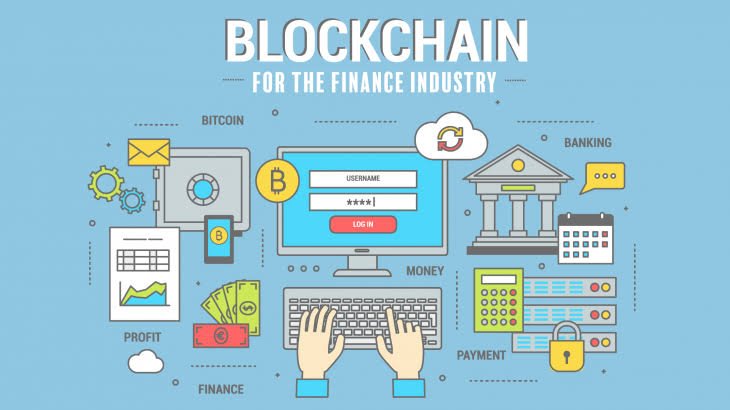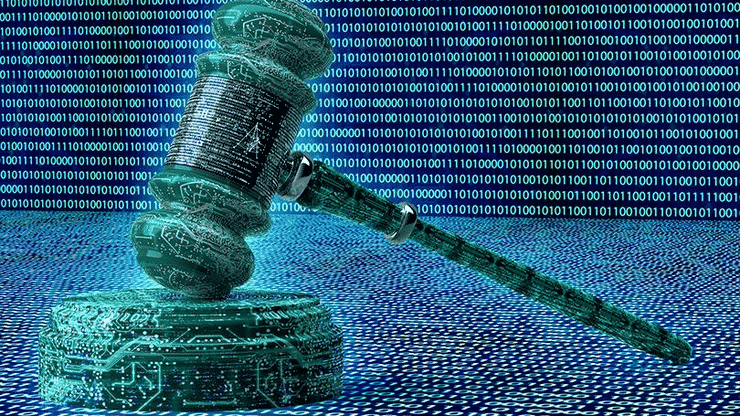
Technological advancements have diminished worldwide poverty significantly in the past 100 years. Although numerous people have have had the fortune of leave destitution because of this, notwithstanding, still in excess of 1.3 billion people live in outrageous poverty. Extreme poverty is characterized as having under $1.25 to spend each day. There are a wide range of reasons for poverty, which vary per nation, yet by and large causes of poverty includes: absence of training, natural issues, absence of access to banking facilities, absence of legitimate ownership of property, absence of rule of law, overpopulation, plague ailments or changing patterns in a nation's economy.
Conquering poverty is imperative if we need to make a world that is peaceful and reasonable for everybody. Moreover, in 2015 the United Nations embraced the Sustainable Development Goals, which includes challenging worldwide leaders to help end poverty in the entirety of its structures, all over the place, by 2030. In this article, I will show us why and how Blockchain could help in accomplishing this objective. Breaking the cycle of poverty starts with putting resources into the young and furnishing them with quality training, information and aptitudes to empower them to understand their maximum capacity. Beside instruction comes access to moderate appropriate medicinal services, access to clean water and sanitation and, to wrap things up, financial security which is where Blockchain comes in.
Economic security incorporates registration of property proprietorship, access to banking facilities and a reasonable and straightforward principle of law, which includes rules that everybody comprehends and respect. Particularly in developing nations these three monetary securities (property ownership, access to banking facilities and rule of law) are frequently deficient. Therefore, these nations regularly have an informal economy, which results in less regard for ownership or financial and legitimate rights, making it costly to maintain the law.
Reducing Poverty with Technology

Expanded access to saving money, accessibility of rule of law and regard for property ownership diminishes the span of the informal economy. Lessening the informal economy has critical preferences including expanded government insurance for consumers, accumulating government pensions for workers, expanded job stability for workers and empowering businesses to develop greater, all adding to reduction of poverty. What's more, making a collective database for poor people makes being poor a lot less expensive.
The goal, subsequently, ought to be to make it super simple for simple people to play the game legally. The rise of Big Data Analytics, Artificial Intelligence and Blockchain can contribute in this colossal quest to lessen poverty at a worldwide scale. Let's take a look:
Guaranteeing Property Ownership
.jpeg)
Rightness and completeness of property ownership registration are essential and in addition avoiding unapproved, deceitful changes to information records. In that capacity, Blockchain innovation is splendidly appropriate to enroll responsibility for, of anything computerized and non-advanced. It will secure the rights of the owner (on account of burglary), will empower simple resolve of dispute, will empower correct transfer of ownership after deal and will avoid fraud.
Officially, various nations are thinking about receiving Blockchain innovation to register and record land title ownership. Nations, for example, Sweden, Honduras and Georgia are trying Blockchain innovation, despite the fact that Honduras' endeavors have as of late slowed down. They are building up a land registry that is straightforward, empowers simple enlistment and regards arrive possession. Enlisting property proprietorship, for example, arrive titles, on the blockchain has various favorable circumstances, for example, altogether decreasing manual mistakes, while enhancing security forms for exchanging records, home loan or contracts.
Blockchain empowers irreversible records of ownership, in light of the fact that once information is on the blockchain, it can never again be tampered with. What's more, the use of brilliant contracts will empower programmed exchange of possession if the correct conditions have been met, securing the vender and in addition the purchaser from false activities. In this manner, Blockchain guarantees simple and safe registration of ownership of property. When property ownership can be proved effectively, the person has a greater chance to thrive in an industrialist society.
When owners have possessed the capacity to record their ownership, it gives them a plausibility to demonstrate their reality, which thus builds the likelihood to get access to banking services.
Access to (Cheap) Banking Facilities.
.jpeg)
Financial inclusion is a critical step towards diminishing neediness, as it offers individuals more opportunity to save and spend their money how, where and when they like. Sadly, for needy people it has turned out to be extremely hard to open a bank account as well as get a loan to enhance their lives or start a business. It is possible that they don't have the correct ID or they don't have a record as a costumer, which makes it about difficult to gain access to banking services. Therefore, they are forced to save in domesticated animals, which clearly isn't exceptionally fluid if basic things, for example, medicine need to be purchased. What's more, an exchange expense of $0.50 on charge card buys, represents half of the every day income for the extremely poor who live off $1,25 per day.
Blockchain innovation is quickly changing this, something we would already be able to see with Bitcoin. Bitcoin empowers everybody with a internet connection to open a wallet and begin getting and sending money, without the requirement for an ID or a record of loan repayment.
Whenever Blockchain and crypto coins are utilized, it offers a wide assortment of new items and administrations for poor people, for a small amount of the costs, which could altogether enhance their lives. Examples include microloans, or payday loans, for a small amount of the expenses of customary (payday) advances. The organization Wayniloans built up a bitcoin loaning stage, or, in other words in Latin America. They offer various advance administrations, including loan, shared, and business advances, utilizing the bitcoin blockchain for a much low rate than conventional loaning organizations.
Another region that can definitely enhance the lives of the poor is Blockchain-empowered remittances. Today, over $410 billion in remittances stream to developing nations, with a normal expense of 8.4 percent and up to 12 percent in certain districts. Remittances are costly, obscure and repeating exchanges of need, with the expenses borne overwhelmingly by poor people. Blockchain can offer gigantic enhancements in cost-funds for the poor who send cash to family in another nation. Of course, there are numerous businesses and associations, including the United Nations, who are creating blockchain based remittances administrations. A blockchain based remittance benefit utilizes a crypto coin to exchange cash quickly over the globe for a small amount of the expenses and uses nearby operators to trade the crypto coin into the local fiat cash that can be utilized by the recipient. Rather than days and costing a fortune, it takes minutes and is almost free.
Blockchain and the Rule of Law

Rule of law implies that a nation and its people ought to be ruled by law and comply with that law, including the administration. Moreover, the law ought to be with the end goal that individuals will be capable, and willing, to be guided by it. It implies that both the administration and nationals know the law and obey it. Rule of law is the principle that law ought to oversee a country and not self-assertive choice of individual government authorities.
Clearly, a nation's law can't be put away and implemented through a blockchain completely, yet separate parts of it can while embracing smart contracts. As of now, Blockchain is profoundly affecting the law business and lawyers are endeavoring to see how it will influence their business. Blockchain and smart contracts can be utilized to change legitimate contracts into code, which are justifiable and undeniable crosswise over legal jurisdictions.
As specified before, I like to refer to smart contracts as If This Then That statements, in spite of the fact that they are much more complex. These are programming programs that utilization Boolean expressions and algorithmic assurance to play out specific activities. Smart contracts automatically execute and, as a result, can't be overlooked. Time after time contracts are basically disregarded, payments postponed or obtusely denied and disputes should be settled in court, costing a considerable measure of time and cash for those included. Smart contracts, whenever developed accurately and safely, will prevent this as the agreement will consequently executed once certain pre-set conditions have been met. In that capacity, it winds up less demanding for associations and residents to comply with the law and assentions that have been made, making it less expensive to play by the principles and reducing the informal economy.
Obviously, there are numerous specialized and authoritative difficulties that should be comprehended and not all agreements can be changed into Boolean articulations. Smart contracts can't work in a vacuum and the lawful structure stays imperative. Nonetheless, when smart contracts wind up regular in developing nations, the potential is huge.
Decentralized Identity

Blockchain empowers different stakeholders to access, and also include or update, records in a mutual database. The significant favorable position is that those associations that are a piece of, people in general or private, blockchain dependably have an exceptional, single form of reality. For the financial services industry, this reduces repayment times, costs and the dangers of fraud and mistakes. Notwithstanding, those equivalent advantages apply to (not-for) profit associations that mean to help poor people.
Numerous Blockchain new businesses are as of now taking a shot at building up a blockchain-controlled advanced character, which could be utilized crosswise over associations and inevitably even crosswise over borders. Organizations working on solutions includes ShoCard, BitNation and BanQu. ShoCard assembles a blockchain-fueled character framework that empowers people, business and governments to set up, confirm and exchange identity information in a private and secure way, while BitNation centers, among others, on giving identities to refugees. BanQu is a character stage dependent on the blockchain that empowers people to make an individual computerized profile contained different individual, budgetary or different records to assemble a 360-degree monetary profile that can be utilized across organizations.
When numerous foundations begin working together, utilizing the equivalent shared database, it could make the whole procedure of helping the poor significantly more proficient, compelling and less expensive. This would enhance the lives of the poor as it gives them a financial profile that could be utilized for different activities.
The Future of Poverty; Non-existant.
The eventual fate of poverty ought to be non-existing, implying that according to the UN objectives, by 2030 poverty is gone on the planet. Huge Data Analytics, Artificial Intelligence and Blockchain will empower us to accomplish this audacious objective, yet only if various associations over the globe are teaming up.
Congratulations @iameme! You have completed the following achievement on the Steem blockchain and have been rewarded with new badge(s) :
Click here to view your Board of Honor
If you no longer want to receive notifications, reply to this comment with the word
STOPDo not miss the last post from @steemitboard:
Do you really belive, that poverty is gone by 2030?
As said in the article that is the goal of the UN. With the way most nations are now that may not be feasible, but it's my hope that with Huge Data Analytics, Artificial Intelligence and Blockchain, much progress should be made.